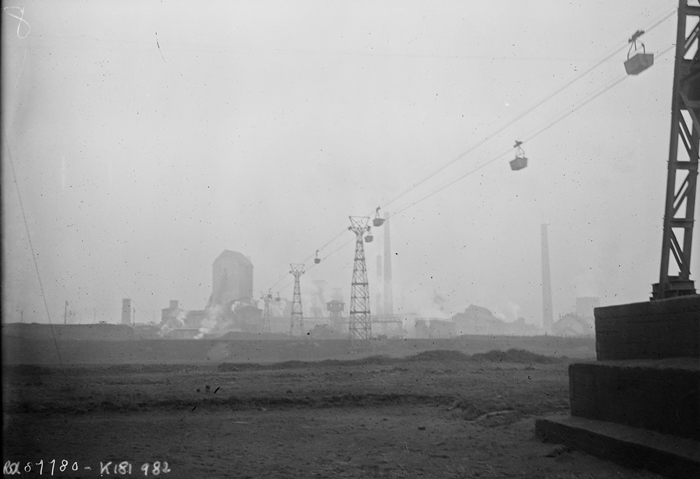Tensions rise in the Ruhr as Germans opt for passive resistance to French occupation
The Ruhr, 5 February 1923 - Tensions in the Ruhr and Rhineland regions continue to rise.
The latest source of local antagonism concerns the arrest and expulsion of officials for refusal to cooperate with the French occupying forces. Compounding the local anger is the requirement for families of expelled officials to follow them out of the occupied territory within four days.
There have also been incidents involving French soldiers and German fatalities in recent days. A miner was shot dead by French troops at Brechton, near Luenen, and when his comrades protested they were taken to prison. And at Bochum railway station, two Germans were killed and four wounded when French troops took to using their revolvers after German workers refused to obey orders.
Interviewed by Press representatives in London, Mr. David Lloyd George, the former British Prime Minister, claimed that France had made a mistake in entering the Ruhr. As Mr. Lloyd George saw it, the Germans, having lost the Saar Valley and a large part of their Silesian coal, had, performed satisfactorily in making coal deliveries from the Ruhr. He added that he didn’t think that M. Poincare had gone to the Ruhr for reparations. ‘I do not like to impute motives’, the former British leader remarked, ‘but even some of the French papers are suggesting that there are other motives.’
Earlier this week, it was reported that France had imposed a blockade preventing trains carrying coal and coke from leaving the Ruhr for unoccupied Germany amidst rising concerns of coal shortages elsewhere.
While Germans will not be provoked into ‘active opposition’ as they lack the arms to do so, Chancellor Dr. Cuno has maintained that there will be no modification of its policy of ‘passive resistance’ in what has effectively become an economic war.
‘We shall not challenge anyone, but neither shall we allow M. Poincare to build a golden bridge on an apparent victory. If we did that the battle of our industrials and workmen, the sufferings of our faithful officials, would have been in vain, because it is necessary to show once and for all the impossibility of the road chosen by M. Poincare.’
This policy of passive resistance has resulted in the refusal of German mine staff to answer inquiries from French officers. When orders for reparations of coal which were to be provided to four large mines were ignored, the managers were either arrested or expelled.
[Editor's note: This is an article from Century Ireland, a fortnightly online newspaper, written from the perspective of a journalist 100 years ago, based on news reports of the time.]





















